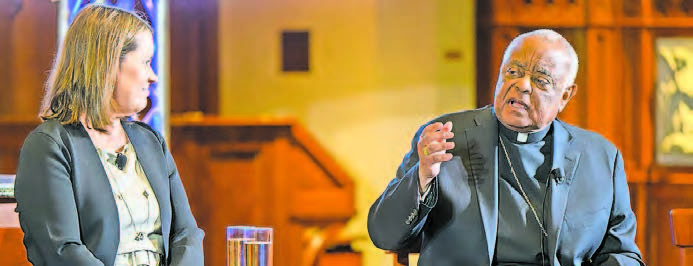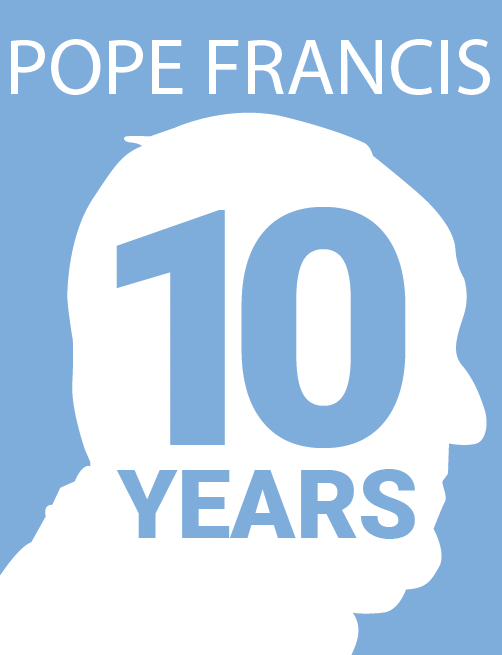
uncomfortable to take great comfort in any one dimension of the Church’s
social teaching.” (Photo: Courtesy of Georgetown University)

A panel at Georgetown University, sponsored by the school’s Initiative on Catholic Social Thought and Public Life, added to that discussion on Feb. 28 by looking back at the pope’s impact on the global Church.
The pope’s message is really a challenge to everyone in the Church, several of the panelists said.
They emphasized that Pope Francis has consistently spoken about living out the Gospel and how that should, in turn, impact others — bringing love, healing, and compassion.
Sister Norma Pimentel, a member of the Missionaries of Jesus and executive director of Catholic Charities of the Rio Grande Valley in Texas, said the pope’s “message of inclusiveness, of encountering the other, is really what we all must do.
“And I love that message,” she said, noting that he “encourages us to be better … better Catholics.”
Sister Pimentel, one of four panelists at the event, is the leader of the Humanitarian Respite Center for families fleeing violence in Central America. She was joined by Washington Cardinal Wilton Gregory; E.J. Dionne, a Washington Post columnist; and Helen Alvaré, a professor at George Mason University’s Scalia Law School and a member of the Vatican’s Dicastery for Laity, Family, and Life.
The woman religious, who has been praised by Pope Francis for her work with immigrants at the U.S.-Mexico border, told the audience that much of her work has just been providing people with the basics of food and water, which is a simple way to restore their dignity.
But she also said the ministry she and others are doing echoes Pope Francis’ message of “radical love” that challenges the Church “to love, to really care, [and] to be inclusive.
“That’s why he speaks about breaking all barriers, coming outward and actually moving and bringing others in,” particularly those on the margins, she said. Sister Pimentel warned that Catholics can be “so comfortable in their bubble,” but that notion is directly challenged by the pope who says: “We have to be one Church. And the only way to be one Church is to kind of get messed up and dirty and get out there, you know, get out there and bring everybody in.”
Alvaré similarly stressed the pope’s challenge to the world’s Catholics, saying that his call for Catholics to accompany those on the periphery is not “just for an hour” but much more long term — spending time with those in need and helping them.
“You can’t live normally according to our American standards and do what he’s asking us to do,” she said, emphasizing that the pope has called on the Church to care for the elderly, immigrants, the poor, the unemployed, and young people who are disillusioned.
“When he asks for accompaniment, it’s in a way that demands that we change how we’re being. And that sticks with me constantly about him,” she said.
Dionne said the pope’s message is often challenging for both liberals and conservatives, and Cardinal Gregory took this a step further, saying that Pope Francis has made it “uncomfortable to take great comfort in any one dimension of the Church’s social teaching.”
As he put it: The pope makes it possible to say, “If you really want to be a Catholic, you’ve got to embrace the Church’s whole social teaching.”
The pope’s style and message has been consistent from the start of his papacy, these panelists said.
Kim Daniels, director of Georgetown’s Initiative on Catholic Social Thought and Public Life and moderator of the discussion, said she was at St. Peter’s Square on the day of the pope’s election, and what she took from that experience, particularly of him asking those gathered for prayers, was that he was challenging everyone to “live holiness in everyday life.”
And the sense she felt at the time, that “we’re called to be Catholics together today,” still holds true a decade later.
